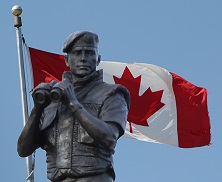True and Fascinating Canadian History
The Mystery of A Mountie
And Manifest Bravery
And Manifest Bravery
by J. J. Healy
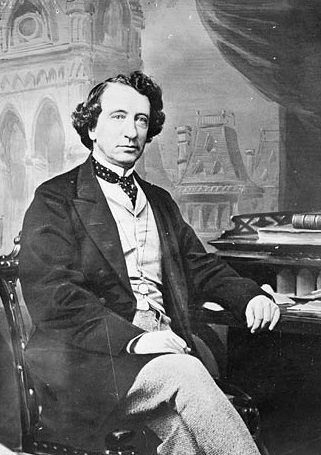
Today, one could easily be overcome with anxiety during a visit to a library. In the stacks, a thousand books or more exist on leadership. They all plead for attention. Due to the volume of research on the topic, one might easily get the impression that leadership has been overworked.
Truth be told, while there is no lack of books, the same ideas tend to be regurgitated and recycled with only a wee pinch of new spice added here and there. In short, leadership is desperate for fresh air.
In a sense, TV is at fault. In the popular media, leadership or the lack thereof is given active voice on every news channel. The daily news carries all the scandals of politicos and leadership gets bashed and blamed much like a hockey coach fighting for his job in the National Hockey League.
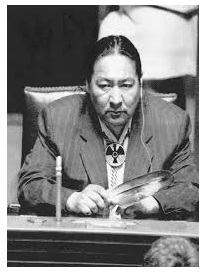
In days gone by, it was common practice to survey a class of new police recruits and seek opinions for the optimal qualities of an effective leader. Ideas which popped up often included; strength of character, willingness to take risks, strong communication skills, motivational skills, clear goal setting, being well organized, creating incentives, perception skills and an easy going manner.
And, while all of these traits may seem critical to an upstart leader, two other factors, by far, are seldom given due attention. They are; care of subordinates under the charge of the leader and whether or not the leader reacts favourably when pressed under real life crisis situations. In any organization which is identified by a close knit culture, such as law enforcement, oftentimes these two factors, which can be critical to a leader's integrity, are given less priority than they should.
In the early days of the North West Mounted Police, recruits were marked by their physical strength and suffering during the March West, as well as by acts of courage and bravery. The history of the NWMP has well recorded remarkable feats, time and time again, by a couple hundred men in their push to the West.

In the course of the March West, obstacles of unimaginable proportions found their way in the path of the NWMP; sick men and horses, thunderstorms and lightening, rioting horses, a lack of supplies, ill fitting boots and swamplands to name but a few.
As it turned out, the burdens placed on each of the men was far more than any of them had ever imagined. And, there can be no doubt that the whole March West might have failed if it were not for an ample demonstration of strong leadership by the NWMP coupled with their firm resolve to complete the March.
This is the story of one particular man whose strength in leadership gained him an unusual high standing among all other men of the NWMP. Throughout the birth of the NWMP, he sacrificed his personal health and safey for his constables. And, more than one instance has been recorded in his saving the lives of his men.
There may be a lesson for all police officers in 'The Mystery of the Mountie and Manifest Bravery'.
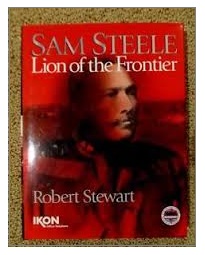
Looking back, it almost seemed that the Canadian frontier of the 1870's had been purposely designed as a full stage upon which Sam Steele would eventually play out his life with the NWMP. He was born in 1850 in Simcoe County, Ontario and by the age of 16 years he was an orphan. After school hours, he spent his boyhood days, winter and summer, in his neighbourhood woods and forests.
It was here that he learned to box, wrestle, fight bare knuckle with other boys, ride a horse and to ice skate. His boyhood menu consisted of a full outdoors platter in all sorts of weather. He said the weather's harshness prepared him as a boy for what he would later experience on the priaries. It was here too that he quickly learned that he was alone in the world and that, if he intended to succeed, then he had to stand with no one's help. Steele once recalled that his rough house life style as a boy forced him to sprint unusually fast into manhood.
In 1866, at the age of 16 years, Steele volunteered for the militia. His transition into a more disciplined life with a crowd of men was smooth. He had come proudly from a military ancestry -- all five of Sam's uncles had died in the service of their country. Now, it was his turn, his time to serve. It soon became obvious that he had inherited a lack of fear from his uncles. A fight with knives broke out among militiamen while he was a fresh corporal. The situation turned nasty among some individuals then it turned into an ugly mob. Steele faced the men with his rifle and forced them back into their barracks. On another occasion, he used his rifle to fight off three ruffians who attacked him. But, ugly incidents which broke out from time to time, in the militia seemed not to be enough to fully challenge Steele. There had to be more to life, he thought. He would face tougher days ahead.
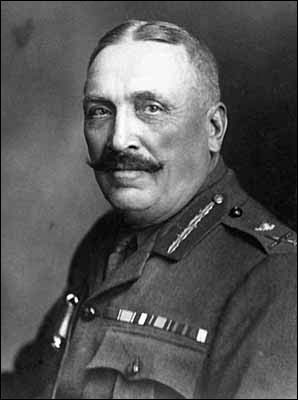
Sam Steele's square jaw matched his squared off spirit of adventure. In 1873, he lined up among the very first applicants to be hired into the NWMP. His unusual and strong character skills, gained from his boyhood and the militia, must have been apparent and seen as valuable assets to senior NWMP Recruiters. On about his first day, he faced an unusual promotional opportunity which was not offered to other men; but Steele chose to join as a Sergeant Major rather than accept a short cut and to engage at an Officer's rank.
The lower rank anchored Steele in the midst of the recruits and into the middle of their hard and rough lives. His decision in the matter of a lower rank would signal a leadership style founded on conservatism and modesty which was rare in others. Rather than accept an Officer's Commission, his appointment as Sergeant Major allowed him to remain close with the men -- another rare yet admirable leadership quality and one which entrenched itself in his psychic. His desire to remain close to the men characterized Steele's entire career and gave him a richer perspective of life in the Force which other senior NWMP Officers missed entirely.
In professional life, most other men would likely have chosen the higher place at the career table, but Steele’s modest style gained him ground in the eyes of the early recruits. Based on his military background, and his physical skills, there is no doubt that Steele could have succeeded well at the Officer level when it was first offered, but he preferred to operate, for the time being, in the stable of unbroken horses and with the men on the floor of hard knocks. At the time, it is doubtful that Steele gave his decison to engage as a Sergeant Major much more thought, but perhaps his choice of one rank over another had an impact on the direction he career path took many, many years later.
Whether or not Steele knew that he was truly a different sort of leader and set apart from other men is anyone’s guess. But, his reputation among the recruits of the NWMP as a tough, inspirational leader took early notice. Unlike other NWMP firsts, Steele had already been toughened by an earlier life and long travels in the militia; he was self disciplined and physically strong, he could ride a horse, he could march in formation and he was proven to be a crack shot with a rifle. He was reputed to have the strength, energy, drive and zeal of two or three men. All these skills and all his strength would be necessary if he and his men were to survive the NWMP after the March West got underway in June, 1874.
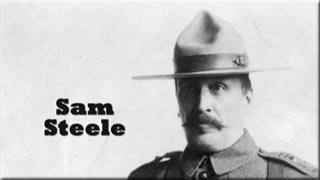
In one instance months later, every living animal in Steele's column was too weak to walk any further as they marched northward in the direction of Fort Edmonton. It was late in December and there was danger that if the horses were to lay down, they might not have the strength to get upright on foot again. When the recruits tried to sleep, Steele called them into action in the middle of the night to care for the horses legs which required rubbing to restore circulation. His energy seemed limitless. At times, the mud caused horses and wagons to sink. It was necessry for Steele to supervise as materials were off loaded and then reloaded and after he helped the horses gain freedom. Another time, a horse fell into an icy water hole and had to be saved but only after Steele waded into the freezing water himself. It was said that Steele worked over twenty-four hours without rest.
Instead of pausing for rest, Steele would change his clothes and continue to half carry, half pull both horses and his men onward so they would not freeze. Inspector William Jarvis was so impressed by the hard labours of Steele, that Jarvis wrote in his report, "he [Steele] has performed the manual labour of at least two men." (p.92). At the time, it was noted that the March West had travelled 1,225 miles in a little more than six months.
Another close call with death was often retold by Steele himself. One day, Steele, two constables and an interpreter left Fort MacLeod for the purpose of taking a census of the Aboriginal population. Unexpectedly, the weather turned cold and then worsened. Feed was scare for the horses then the small party's rations gave out. Their intended route was lost due to a blizzard and the men soon began to freeze to death.
Over the ensuing hours, it was necessary for Steele to drag each of the men from their saddle. They had to be shaken, cuffed about the head and shoulders until they were revived. As they continued stumbling along to find a suitable route to safety, Steele took turns slapping and reviving each of the men keeping them awake. Eventually they found shelter from the cold in a hut. Later, the men acknowledged that Steele's actions saved them from death.
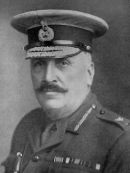
Steele's NWMP career, as played out on the Canadian frontier, was well marked by one heroic event after another. His name unquestionably is linked to the rich and favourable mythology of the NWMP and the peaceful settlement of the Canadian west. Setting mythology aside, perhaps more important was Steele's leadership -- identified by always giving priority to the care of his subordinates as well as the untold acts of bravery he performed under real life crisis situations. In each drama, particular care of his subordinates characterized his leadership.
Steele's name rings high in Canadian history. And yet, mystery encircled the final years of Sam Steele's life in the NWMP -- a life marked in full measure by great deeds and favourable mythology which the Force continues to enjoy even to this day.
Over time, Sam Steele was promoted from Sergeant Major to Inspector and eventually to Superintendent. The reasons for his career to be halted remain somewhat of a mystery and perhaps not fully understood. On the one hand, Canadian history is all the richer for the life and times of Sir Sam Steele. On the other hand, after such as remarable career, it puzzels historians that he was never given the top post of Commissioner.
The fact that Sam Steele never became Commissioner should not diminish a continued emphasis on all his accomplishments or for recognizing him as a great Canadian. But, there may be a short lesson for all police officers which can be taken from his career. First of all, life is not entirely fair. Not everyone is able to fulfill their dreams or to accomplish all they wished for. Disappointments arise in all sorts of careers; policing, politics, government and sports. One can only perform to the very best in all things and hope for the best.
Secondly, not everyone can control all the factors which enter into a professional career. Sam Steele is remembered as a great Canadian because he led an extraordinary and long career in the NWMP. But, the selection of Commissioner was the prerogative of other persons thus beyond his control. It was truly sad that he never became Commissioner as he wished, but Canadians continue to hold him in high regard for all of his otherwise remarkable contributions to Canadians history. Sam Steele enriched all our lives as a Superintendent and his accomplishments will not soon be forgotten regardless of his rank in the NWMP.
Reporting from the Fort,
J. J. Healy
July 24, 2014
Source:
Berton, Pierre. (2005) The Wild Frontier. Tales from the Remarkable Past. Anchor Canada. Random House. The saga of Sam Steele. 83-116.

